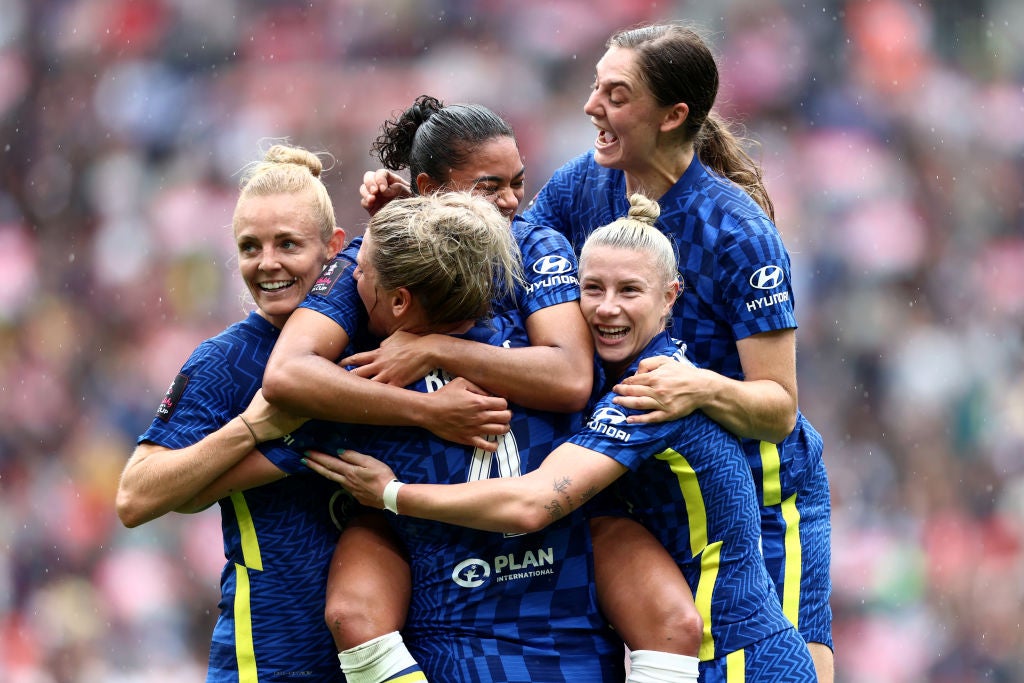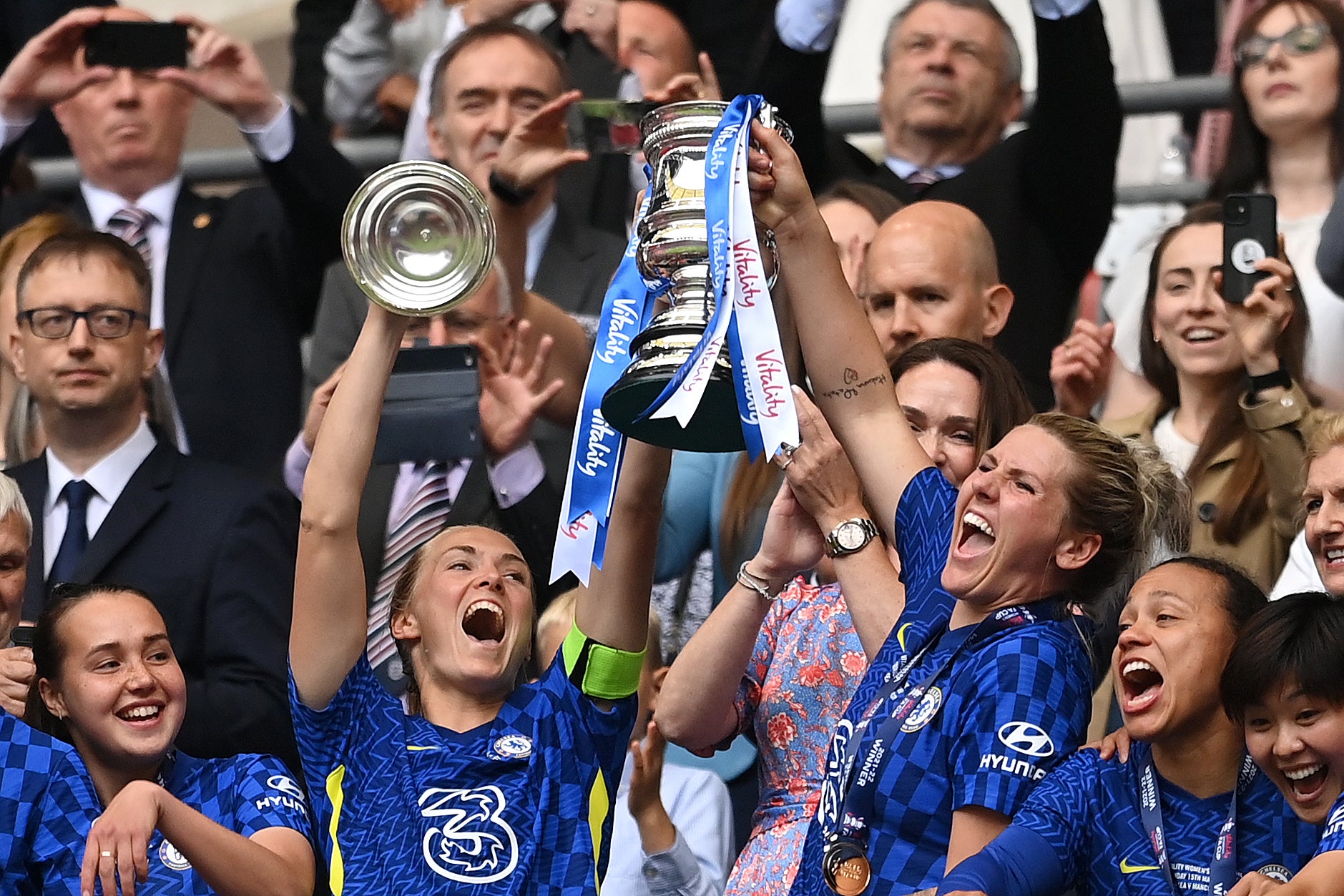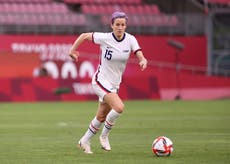Women’s football needs more high-profile sponsors
Big brands across sports, tech and lifestyle should be putting their money into the ever-growing women’s game in order to keep the momentum going


As I sat in the seats of Wembley Stadium for the Women’s FA Cup Final on Sunday 15 May, I was overjoyed to see the passionate crowds of young women and girls who were undoubtedly inspired by the talent on the pitch.
As a childhood football fan, who often struggled to find physical spaces to play without fear of sexism, I felt disconnected to the game for many years. This made watching as Chelsea went on to win the cup all the more exciting and memorable.
However, I couldn’t help but notice that the stadium was not adorned with sponsored advertising from big sports, drinks or lifestyle brands, as the men’s game is. There wasn’t an Adidas or Coca-Cola ad to be seen and instead, a sponsorship from a health and life insurance company.
Women’s football has increased exponentially in popularity in recent years, and according to Fifa, there are 29 million women and girls playing football worldwide, with a growth goal of 60 million by 2026.
Unfortunately, there are still deep-rooted issues of inequality between the men and women’s game, highlighed by research published by Durham University this year.

The survey of 1,950 male football fans found that messages from the fans “strongly represented” progressive views, but these were not as common as “hostile and sexist attitudes”. Too many believe that women’s sport is inferior to men’s sport, particularly in relation to football. Some even think that women shouldn’t be playing football at all.
The authors of the study suggest these attitudes represent a backlash against the increased visibility of women’s sport, particularly after the 2012 London Olympic Games and the 2015 Fifa Women’s World Cup.
Outside of the very important issue of pay disparity, there is also a lack of access to training facilities and funding for female footballers. Chelsea player Pernille Harder, who was a part of Sunday’s winning team at the FA Cup, said she was trained by her mother up until the age of 14 and called for better opportunities for women and girls.
She said: “Girls have to fight to find places where they can get good training and get good coaches. It’s not really there for them. I think that’s the biggest issue, for girls to be able to get to a really good academy and access the best coaches at an early age.”
This is where sponsorship comes in. Sponsorships provide funds for teams and tournaments, allowing them to buy essentials such as team kits, equipment and travel, and hire training facilities and grounds – in exchange for advertising. They play a key part in keeping the game going financially and without them, teams often struggle – which is the last thing that the women’s game needs.
To keep up to speed with all the latest opinions and comment, sign up to our free weekly Voices Dispatches newsletter by clicking here
Big brands across sports, tech and lifestyle need to be putting their money into the ever-growing women’s game in order to keep the momentum going and help players – new and old – to keep playing.
Sunday’s game set an attendance record of 49,094 fans watching at Wembley Stadium, and as the Women’s Euros 2022 – or the UEFA European Women’s Football Championship – fast approaches, I hope that female football fans can see more household names supporting the women’s game.
It’s no doubt that there is a growing viewership and loyal fan base for the sport, and for girls with dreams of playing on pitches like Wembley, they need continued support to be able to get there.




Join our commenting forum
Join thought-provoking conversations, follow other Independent readers and see their replies